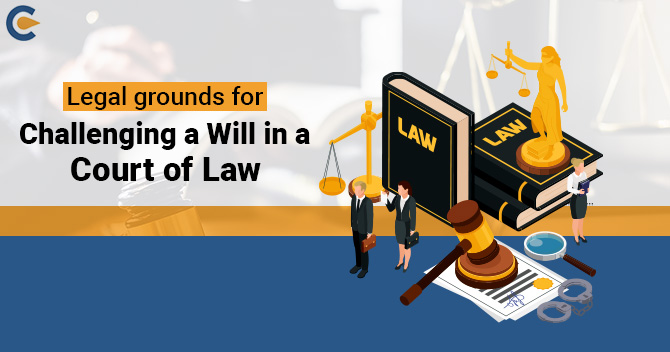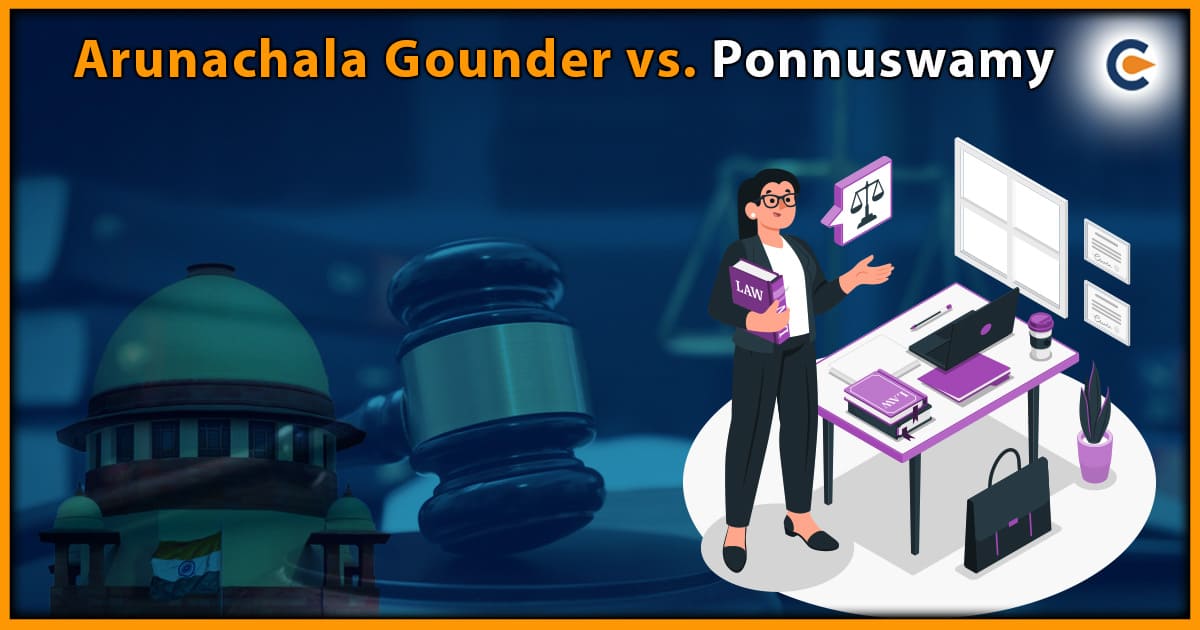The heirs of a piece of property or financial assets are needed to establish their rights to them in the absence of a will. An heir may be required to present either the succession certificate or the letter of administration in such situations, depending on the asset. A district court issues a succession certificate to the legitimate heirs of a deceased individual. The court may issue a succession certificate to realize the deceased’s debts and assets if they pass away without leaving a will. It confirms the legitimacy of the heirs and grants them the power to transfer securities and other assets into their names, as well as inherit liabilities. A beneficiary’s application to a court with jurisdiction is granted in accordance with the appropriate inheritance rules. To release the deceased’s assets, a succession certificate is frequently required but not sufficient. For these, you’ll need a death certificate, a letter of administration, and certificates of no objection.
The succession certificate is necessary for moveable property such as the provident fund, bank deposits, shares, loans, or other assets. One must present the letter of administration in support of their claim for immovable property, such as jewellery or real estate.
There is a provision for the nominee in relation to bank accounts, the provident fund, and shares. However, if there is a disagreement, the court may request the succession certificate, and shares. However, if there is a disagreement, the court may request the succession certificate. The financial institution may also request that the claimant present the succession certificate if there is a significant sum at stake or if it has any doubts about the claimant’s sincerity.
The succession certificate, which is simpler to get than the succession certificate, may be requested in specific circumstances by the bank or financial institution. The succession certificate is produced to prove the legitimacy of the heirs and grant them the right to inherit the assets, whereas the succession certificate is issued to identify the living heirs of the deceased.
According to the Indian Succession Act and a succession certificate is a document that authorises the holder to collect debts and securities owed to the deceased or payable in his name. In the majority of instances, the court has a distinct section that issues succession certificates.
In the case of immovable property, additional documents, such as a gift deed, may be useful. This document authorises the successor to transfer the deceased individual’s debts and assets.
The issuance of a succession certificate does not confer the right of succession to a deceased person’s asserted property because it does not establish the deceased person’s right, title, and interest to a particular property or to the entire property.
What Does A “Succession Certificate” Mean?
A succession certificate is a document that a district court issues to certify that a person has the legal right to succeed a deceased person. This document gives the successor the right to sell the dead person’s debts and assets. Because it does not establish the right, title, and interest of the deceased person to a specific property or to the entire property and the issuance of a succession certificate does not confer the right of succession to the claimed property of a deceased person. However, the intestate decedent’s successor(s) is/are entitled to inherit the decedent’s property.
According to Section 370 of the Indian Succession Act, when a deceased person leaves behind a lawfully drafted will, In the event that the executor of the will is the sole beneficiary of the estate, a Succession Certificate cannot be issued. In circumstances where it is appropriate, the district court (Section 371 of the aforementioned Act) whose district the dead person ordinarily resided in is the appropriate court to issue the certificate.
- Regarding Movable Properties
A Succession Certificate for Moveable Property is a document that the court issues to allow the heirs of the dead to claim moveable property. It is important, and while creating and putting them into action, appropriate guidance should be obtained.
Generally, banks will not release money or FDs unless a document of this sort is provided to the successor. It is used for moveable assets such as bank deposits, FDs, and so forth.
If someone dies intestate (without leaving a will), the district court can order the release of the deceased’s obligations and securities. It proves the heirs’ legitimacy and gives them the ability to have deposits and other assets transferred into their names. It is granted under the appropriate inheritance laws in response to an application made by the beneficiaries in a court of competent jurisdiction. Beneficiaries filed a claim in a court of competent jurisdiction.
- Any beneficiary who wishes to inherit the deceased person’s assets or simply have them transferred into his name must first petition for a succession certificate at the court where the deceased person last appeared.
- The document or certificate that is made public proves the petitioner’s legitimacy and grants him the right to request the transfer of the assets into his name. The beneficiary will have complete duty and obligation for fulfilling any debt or security related to that specific property in addition to power.
- The document is always issued in accordance with the relevant inheritance rules for all requests made by a recipient to a court of competent jurisdiction.
- Regarding Immovable Property
Here, we have instances where legitimate heirs contest ownership of title and occupancy. The title to a piece of property may be transmitted systematically by a factum of a will or the Law of Natural Succession if the inheritors are class I legal heirs.
- Through a gift deed, a transfer can also happen while the recipient is still alive. In other situations, a person can use a partition to assert his or her claim.
- After these steps are finished, the person has complete ownership and control. Our company can handle all associated services, including document acquisition and sale, if you so desire.
How Do I Get A Succession Certificate?
- Documentation Preparation:
You must gather papers that showcase the deceased’s asset or debt, as well as the deceased’s death certificate, identity card, ration card, and any other documents advised by the lawyer.
- Petition:
A petition for a succession certificate must include the following information:
- A properly signed and verified petition must be filed with a district court of competent jurisdiction.
- In the petition, details such as the petitioner’s name, the names of the deceased’s legal heirs, the petitioner’s relationship with the deceased, the petitioner’s right, the residences of the deceased’s relatives and family, and the details of death, as well as the death certificate debts and securities for which the succession certificate must be obtained, must be mentioned.
It is important to get legal counsel before drafting the petition, because mistakes might have major implications.
- Charge:
A specified sum is assessed as a court charge for this process in accordance with Schedule II of the Court Fees Act, 1870[1]. States may have different stamp duties.
- Process:
The court publishes a 45-day newspaper notice. Anyone with concerns about it is free to voice them. The court grants a succession certificate if no objections are raised. Five to seven months are needed for this process.
- Court appearance and submission:
The petition will be filed in a court with appropriate jurisdiction, and the lawyer representing you will notify you of the day of the appearance.
- Certificate Is Given:
The judge will make a decision about the petitioner’s eligibility for the succession certificate after hearing from all parties.
The Documents Needed To Get A Succession Certificate Are As Follows:
The list of documents needed to apply for the succession certificate is provided below:
- All legitimate heirs’ PAN Cards are included on the death certificate.
- Address verification for each legal heir.
- Prescribed application form with a stamp for the court fee.
How Long Should It Take For The Court To Issue The Succession Certificate?
- From the date of submission, it should typically take 3–4 months to acquire your certificate.
- A court with the authority to give a certificate.
- A certificate may be issued by the district Judge whose district the deceased habitually resided in at the time of his life time (death) or, if he had no fixed abode at the time of his death, by the district Judge whose district any portion of the deceased’s property may be discovered.
Succession Certificate Limitations
You are authorised to distribute the assets to the legitimate heirs in accordance with succession regulations once you receive the certificate. The majority of people mistakenly believe that once a succession certificate is received, the individual is now the legal owner of the deceased’s property. A succession certificate enables the individual to behave just as a nominee would. It grants the bearer the authority to distribute the estate’s assets.
A will or a nominee should always be named in all of your financial accounts, including stocks, savings accounts, term deposits, mutual funds, etc. The nomination can also be sent to the property owner.
Conclusion
A succession certificate is a document which is legal document issued by the court to enable the deceased’s heirs to claim their property. Appropriate direction should be sought during the creation and implementation of these plans. The succession certificate confirms the identity of the deceased’s legitimate heirs and the absence of a will. This isn’t the most important document in the case of property, but it may be sufficient for the legal heirs to administer and dispose of property. It’s probable that a letter of administration is required for this. A letter of administration is a legal document that expressly gives someone the power to manage the assets of a person who has passed away intestate. The procedure presented is the process for obtaining a succession certificate.
Read Our Article: Probate, Succession Certificate, & Legal Heir Certificate: Scope & Applicability











